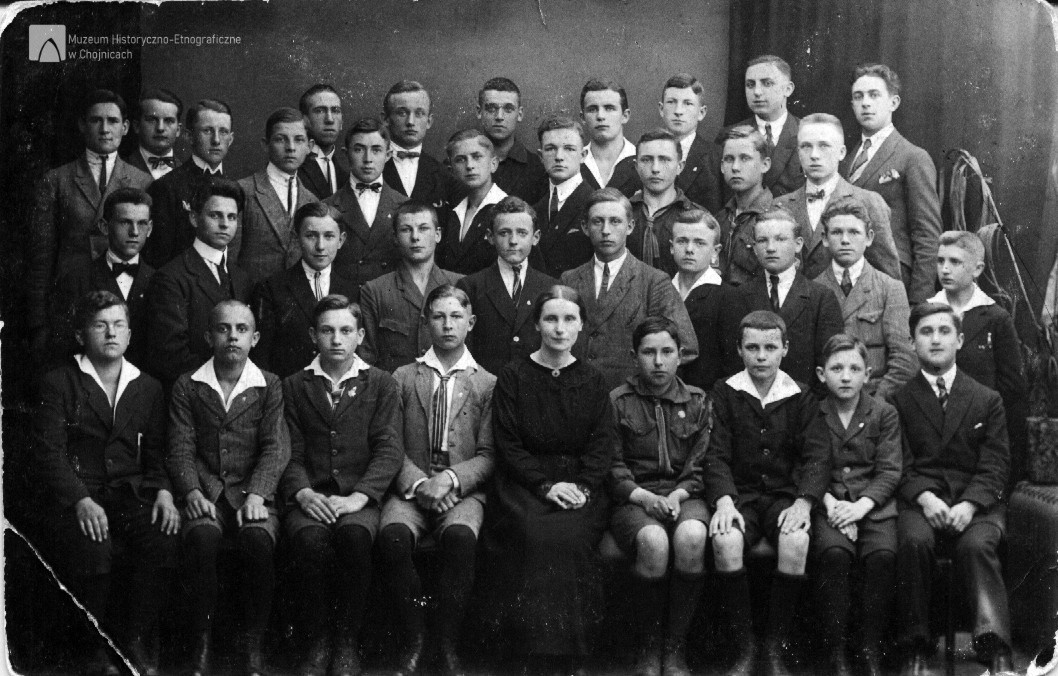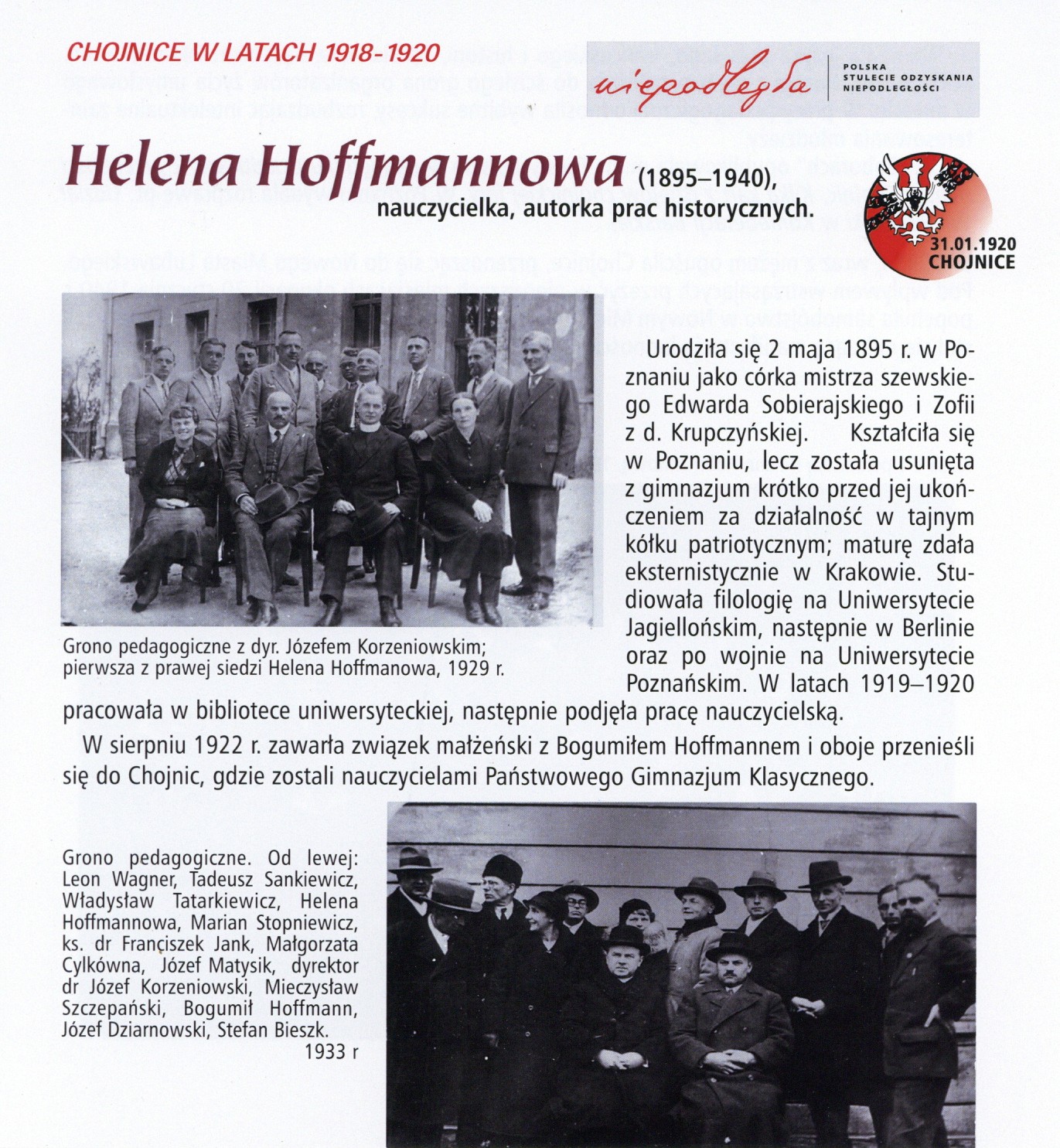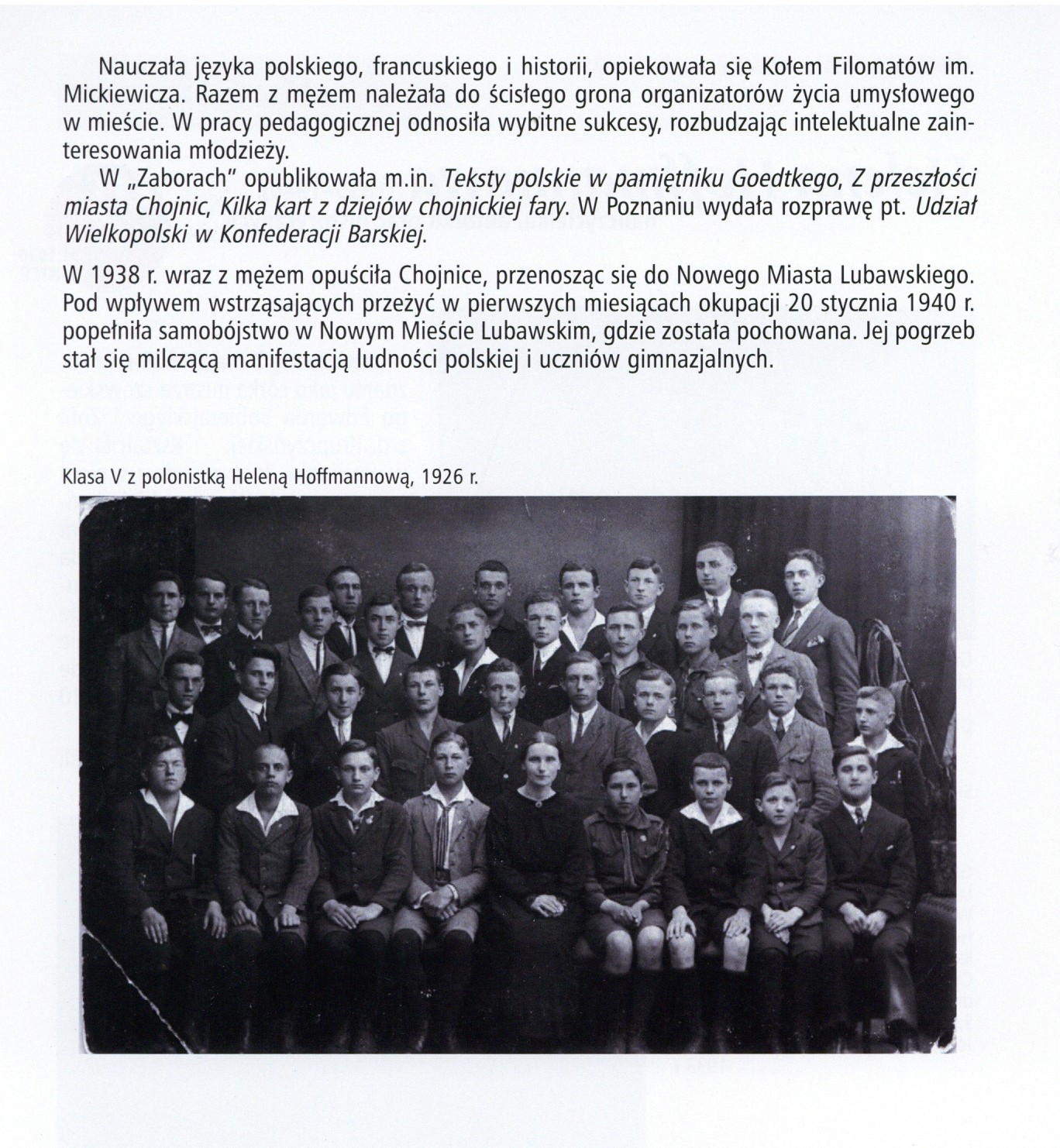
Helena Hoffmannowa (1895-1940), secondary school professor, author of works about Chojnice
One of the most prominent teachers who were distinguished in the pedagogical circle of the men's gymnasium in Chojnice was Helena Hoffmannowa. Born on 2.05.1895 in Poznań to Edward Sobierajski and Zofia Krupczyńska, she was initially educated in Poznań. She was expelled from secondary school for her activity in a secret patriotic group, and was additionally forbidden to continue her education in the Prussian partitioned territories. She passed her matura exam externally at St. Anne's Gymnasium in Kraków in 1913. She began studying Polish philology at Jagiellonian University, which was interrupted by the outbreak of the First World War. She then continued her studies at university in Berlin, where she was active in the underground organisation ‘National Group’. In 1919, she graduated from the University of Poznań. From 1919 to 1920 she worked briefly in the university library and the State Archives in Poznań, and from September 1920 she took up a teaching post. After marrying Bogumił Hoffmann in August 1922, they both moved to Chojnice, where they took up teaching jobs at the State Classical Gymnasium. Helena Hoffmannowa taught Polish language and history. She was eminently successful in her work with students, stimulating the intellectual interests of young people. She was one of the most popular professors. From 1931 she was tutor of the A. Mickiewicz Philomath Circle.
On 30 April 1937, due to ill health, Helena Hoffmannowa ended her professional work. She was remembered by her pupils and colleagues as a respected, conscientious and kind person.
In the academic field, Helena Hoffmannowa shared her interest in regional history with her husband Bogumił. Among other things, she analysed the writings of the mayor I. G. Goedtke, the first historian of Chojnice. Among other things, she published a dissertation entitled. ‘Polish texts in Goedtke's diary’. She also published extensive works in the journal ‘Zabory’, which made an immensely valuable contribution to the historiography of the town. At the request of the Chojnice Circle in Berlin - she translated her husband's work ‘Z historii Gimnazjum Państwowego w Chojnicach’ into German. Earlier, in 1918, she had published in print in Poznań her dissertation ‘Participation of Greater Poland in the Bar Confederation’.
The Hoffmanns had three children born in Chojnice: son Kazimierz and daughters Maria and Aniela. They lived in a house at 55 Człuchowska Street (today number 31). Kazimierz was ordained a priest in Pelplin in 1954. Aniela, married name Paździorowa, was a Polish language teacher at the secondary school in Pasłęk for many years after the war. Her recollections include the names of family friends, including Professor Stefan Bieszek, whose friendship lasted through the turmoil of war.
In 1938 Helena's husband Bogumił Hoffmann was appointed headmaster of the state secondary school in Nowe Miasto Lubawskie, and the couple and their children moved to that town. This is where the war found them. Tragic wartime experiences, the threat of arrest, damaged Helena's mental health, leading to her suicide in January 1940. Her funeral was a silent patriotic manifestation.
Helena Hoffmannowna was remembered as an outstanding educator, having a great rapport with her students, and as the author of many highly regarded historical works.
More information about Helena Hoffmannowa can be obtained from the following publications: Zbigniew Stromski, Pamięci godni. Chojnicki słownik biograficzny 1275 - 1980, Chojnice 1986 and Kazimierz Ostrowski, Poczet Zasłużonych Chojniczan, Słownik biograficzny XX wieku, Chojnice 2020.

